Meta and Microsoft are teaming up to create the workplace from hell
The office where nobody can hear you scream.
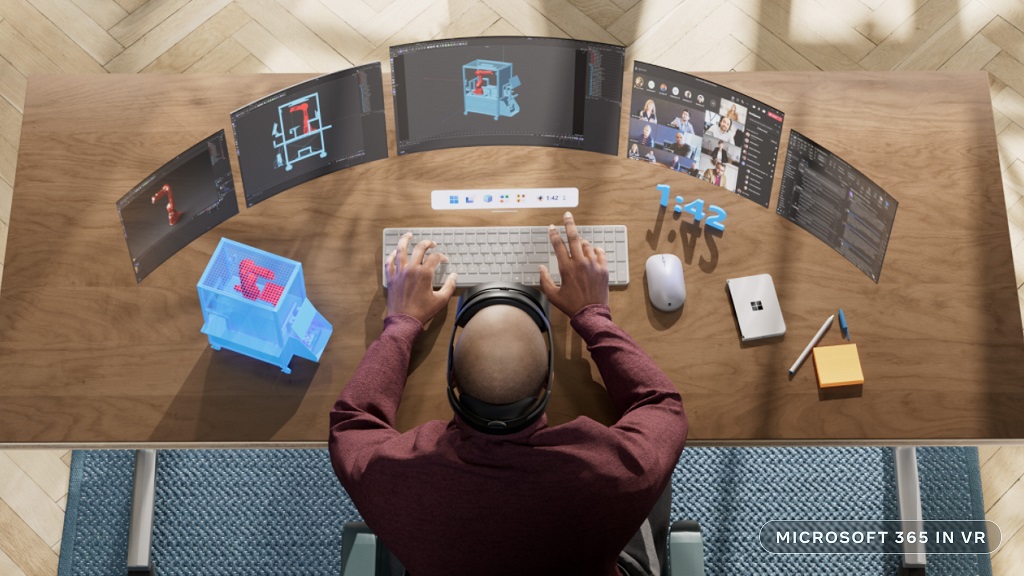
The year is 2077. You shuffle into your Amazon-brand open-plan work domicile. You grimace at the lukewarm Starbucks nutrient-infused coffee in hand, paid for with Bezocoins crypto. The markets are particularly volatile today, so your mandatory nutri-coffee comes with an additional 3 hours of work hours attached. You sigh in grim acceptance.
Some colleagues are at work early, no doubt to complete workhour debts accrued and tracked by mandatory WorkFun™ implants on loan from Meta. President Zuckerberg just celebrated the start of his 9th term in office by revealing the new product, designed to make work more Fun™ and more Efficient™, complete with seamless connectivity to the Meta-brand Meta-verse.
You slip on your Meta Quest 7 mixed reality goggles, to join your colleagues in the Microsoft Teams metaverse workspace. While you cannot afford such expensive accoutrements in real life, your Microsoft Teams avatar sports the latest digital fashion from cyber-Gucci, complete with retro NFT Yeezy crocs.
As your avatar awkwardly navigates the metaversal Teams room, you select a smile from your emotion picker. Facial expressions were supposedly something earlier generations of human beings had, the A.I. tooltip explains. While some scientists have claimed such things to be fake news, seeing the pixelated smiles of your colleagues enhances your productivity rating by 7% according to your WorkFun™ tracker. Settled in the infinite Zuckerverse, as you strap in for another productivity meeting, the first of several for the day.
Welcome to the forever office
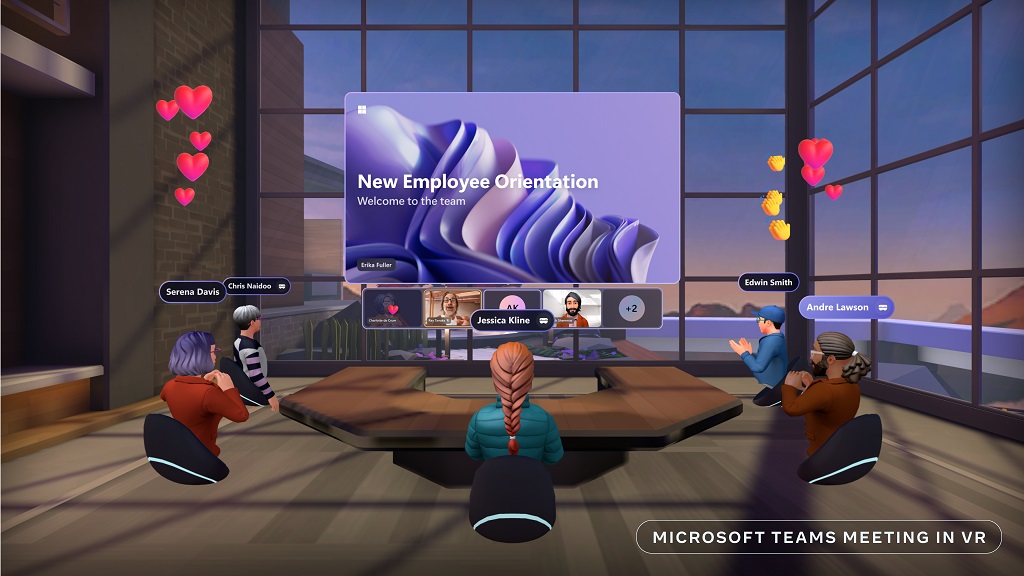
Okay, so I'm being a little dramatic in the above, but right now, it's simply hard to envision a world where any of this Metaverse nonsense actually enhances anything for anyone in practical terms.
This past week, Meta (formerly known as Facebook), kicked off its Oculus event where it outlined the future of its nascent VR platform. Meta CEO Mark Zuckerberg is known to be spending billions upon billions of dollars chasing what he has convinced himself is the next big thing for computing and internet interaction — virtual reality. And for whatever reason, our favorite megacorp Microsoft is seemingly on board. Part of me thinks this is some kind of cynical and Machiavellian strategy to help Meta destroy itself more quickly by leading them deeper into a fiscally dissonant rabbithole Microsoft knows is actually a big nothingburger. Whatever the truth is, Microsoft has sat up and decided to bring many of its products into Mark's Zuckerworld.
Microsoft Teams, Office, and even Xbox Cloud Gaming are all coming to the Zuckerverse. The Office and Xbox Cloud Gaming implementation are pretty pedestrian, running within a regular Window. We've seen this before with Microsoft's own Mixed Reality efforts. However, the Microsoft Teams implementation is more pervasive, with a UI that actually looks arguably better than that of Teams on Windows, complete with cartoony avatars taken from Microsoft's purchase of Altspace VR some time ago.
Get the Windows Central Newsletter
All the latest news, reviews, and guides for Windows and Xbox diehards.
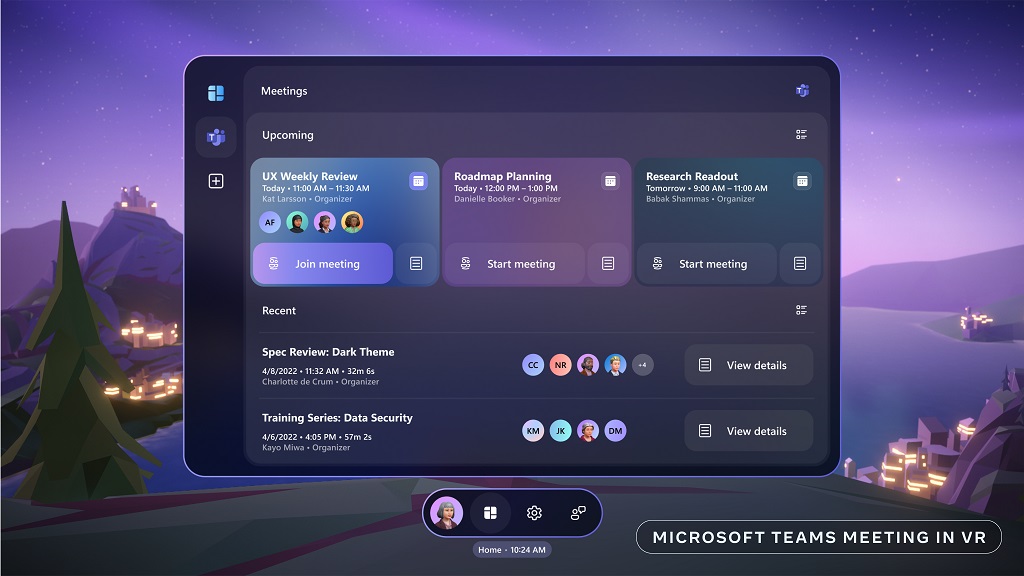
In a blog post, Microsoft opined with diaphanous buzzwords about how much of its technology will integrate with Meta's platform. Corporations will be able to provision and control Meta headsets using Azure Active Directory, which will also integrate Microsoft 365 for Sharepoint cloud documents access, among other things. In a lot of ways, it feels as though Microsoft has thrown in the towel with its own civilian mixed reality efforts, and accepted that the hardware future lies firmly with the Zuckerverse at least for enterprise adoption.
But, I can't help but wonder, who actually wants this for their companies? What employees actually want this? Neither Microsoft nor Meta seem to be able to answer this question with any form of seriousness.
All gas and no steering wheel
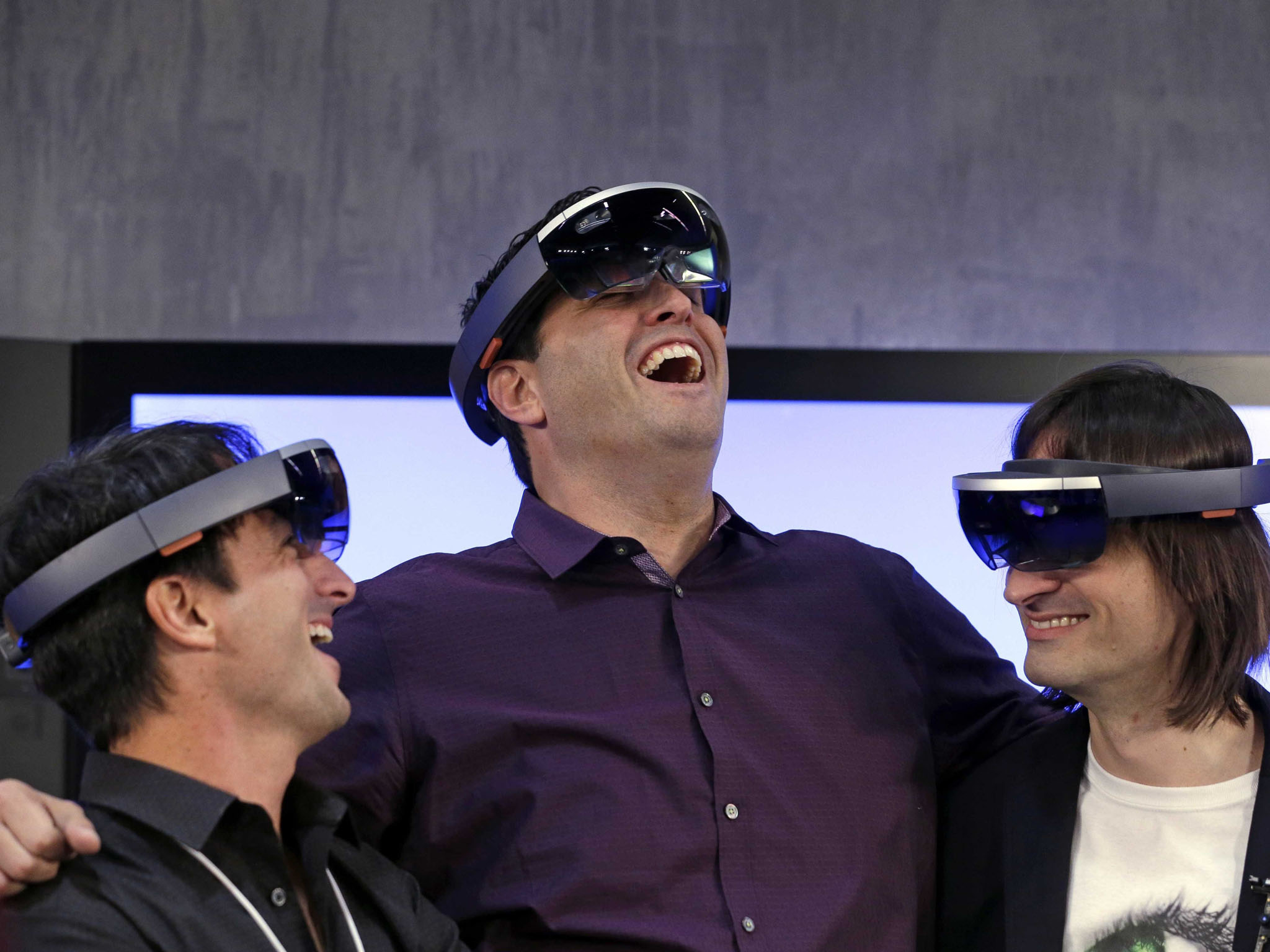
I saw a particularly hilarious headline today, which described how a "metaverse" company with a billion-dollar valuation languished at a laughable 38~ daily active users. "Decentraland" claims that the real figure is around 8000, with the 38~ daily active user figure representing transactional users only. You have to wonder how a company managed to rack up a $1.2 billion dollar valuation on the back of 38 customers per day, but therein lies an extreme example of what is undoubtedly absurd levels of hype, with abysmal levels of substance in the space.
In Microsoft's own musings on the subject, Redmond claimed that "people crave deeper, richer ways of collaborating and co-creating from wherever they are." I'd be interested to find out who these people are that specifically use the word crave to describe spending a Microsoft Teams meeting in virtual reality. Perhaps they misheard the word cringe instead?
Microsoft also says its "Work Trend Index" — whatever that is — suggests "50% of Gen Z and Millennial" workers "envision" doing "some" of their work in the "metaverse" in the next two years.
Is this really the data set we're using to invest billions into this space? 50% "envision," which is essentially another word for maybe in this context, doing a vague some of their work, in a barely defined metaverse. Is the bar really this low? Apparently, it is. But, in the world of technological tunnel vision, maybe the data doesn't even matter.
The culture that arose spontaneously at Lytro suppressed its fatal flaw.Everyone knew, deep-down, that middle-school geometry doomed the design, but everyone also fervently believed that it could somehow be overcome by sheer will, or hard work, or a stroke of genius. 5/nOctober 10, 2022
This great thread on Twitter from former Google engineer Warren Craddock describes what I believe all current Metaversal projects suffer from on a terminal level. It feels like nobody is actively telling Mark Zuckerberg or any of the other tech CEOs doing funding rounds on this imaginary world whether or not any of this actually makes sense.
Essentially, Craddock describes how products like Google Glass failed, because the teams working on them refused to acknowledge or admit any of them had a fatal flaw, and instead simply kept plodding away hoping someone would come through with a killer app or silver bullet feature that would offset all the failings. We've seen Microsoft fall into this trap before, where a project's cultural solipsism blinds them to what the wider market actually wants, or more importantly, needs. The U.S. Army recently claimed that Microsoft's military-grade HoloLens headsets, if used in the field, could actually get them killed. If that's not screaming indictment of VR's overthought applications, I don't know what is.
For civilian uses, Microsoft can have as many focus groups filled with leading questions as it wants, but the market will ultimately decide whether the so-called "Metaverse" lives or dies. This is, of course, assuming Microsoft and Meta haven't diluted the meaning of what the Metaverse actually is to the point where it's simply become a trendy word for the internet itself. Microsoft's "Work Trend Index" is not indicative of anything besides a will to overthink and justify funding allocation for things that could elsewise go to something far more productive.
Does anyone, on earth, except in the most niche of highly technical industries, need a $400 VR headset strapped to their face to perform a Microsoft Teams meeting? The answer is a very hard no, for anyone with even the vaguest sense of self-awareness.
Nobody actually wants this, except ...
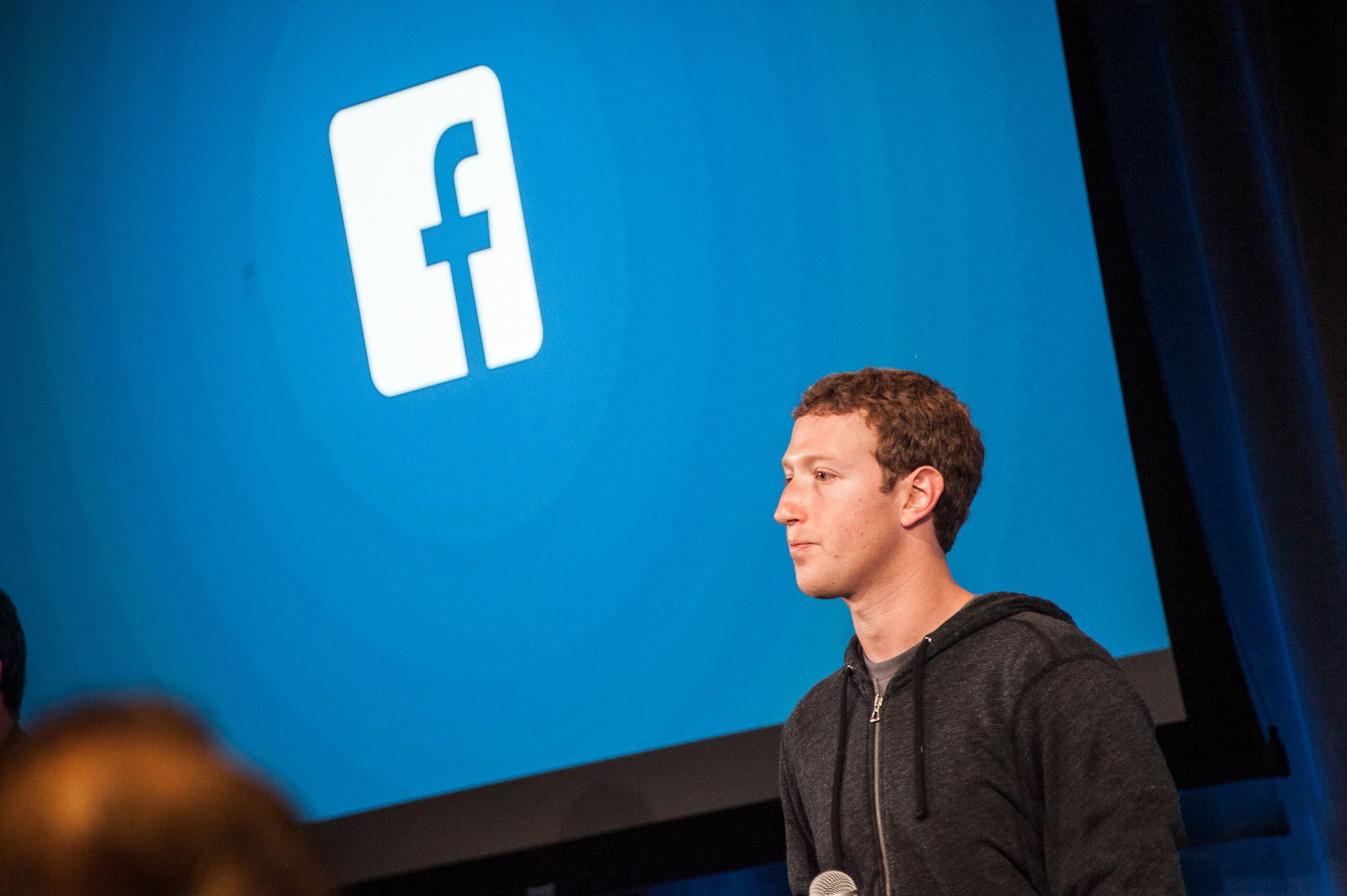
I've long held that the real reason any of this exists is due to a cognitive error on the part of Mark Zuckerberg, who has perhaps spent too much time in a reality of his own design that he can no longer see the real one.
In a pretty telling interview with The Verge, Zuckerberg basically admitted what I've long argued — that really, this is about Apple, and to a lesser extent Google.
Zuckerberg dressed it up in his commentary to The Verge, saying that Meta's openness will stand opposed to Apple's closedness, allowing developers to build their businesses within Meta's universe free of Apple's draconian restrictions. Of course, this is a projection. What Zuckerberg really wants here is to control a hardware endpoint to the internet. A Meta app store, free of Apple's privacy controls, which Apple has wielded like a bludgeon slicing hundreds of billions off of various ads-based business. Faced with Apple's tracking protection on the one end, and the rise of TikTok devouring Meta's younger audiences, Zuckerberg has gone all in on a comforting vision of an internet controlled, ultimately, by him.
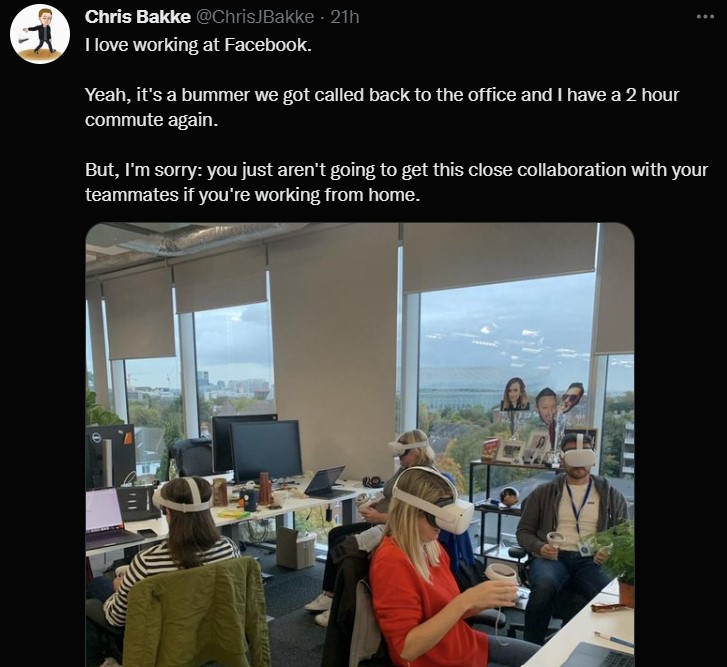
I can see both sides ultimately, at least analytically (especially as someone who works for an ads-based business, while also using an adblocker (don't tell my boss)). Apple's privacy controls are great for users, but it's also kind of wild that one company has this kind of power. Apple's utterly closed ecosystem gives it an undue amount of control over developers and consumers apiece, jacking up prices on its hardware, and raking devs for extortionate fees that seriously harm innovation in mobile development. Some companies are already charging a "cookie paywall" for scenarios where users block its trackers, since privacy controls are becoming so costly to businesses that offer content for free.
In a business scenario, these Meta headsets are essentially akin to allowing your employer to put CCTV in your home office.
Microsoft undoubtedly sees a benefit to propping up Zuckerberg's app store, considering Apple anti-competitively blocks apps like Xbox Game Pass from appearing in on iPhone natively. It's potentially a low risk bet for Redmond vs. wasting money on their own Windows Mixed Reality platform which has essentially gone nowhere. But the implications of a Zuckerverse workplace potentially represent a Kafkaesque nightmare for employees who rely on remote work.
Apple aside, the idea of a company like Meta wanting a world where it can literally track what you're looking at with its headsets is creepy at best, and dystopic at worst. I'm looking forward to the first lawsuits that arise when someone is fired based on productivity data taken from one of these wearable nightmares. A man in the Netherlands recently won a court case against an employer who had fired him for refusing to turn his webcam on while remote working.
In a business scenario, these Meta headsets are essentially akin to allowing your employer to put CCTV in your home office, in your very eyes no less, with health monitors on your skin. Meta's terms of service requires that you accept that your gaze data is monitored. Even the most optimistic futurist will have a hard time denying the dystopic potential this implementation could bring, both in terms of annoying ads and employee monitoring — I.T. admins with the ability to control what you actually see via Azure Group Policy Object? How many people are craving that kind of work environment, "Microsoft Work Trend Index"? I'm sure Microsoft hasn't been asking these kinds of questions when describing the ethereal "metaverse."

Without aggressive regulation and strict privacy controls, this could all end up morphing from a mildly irritating waste of money to something nightmares are made of. But frankly, the more likely outcome is that nobody will use it. Mark Zuckerberg seems hellbent on making it seem as uncool as possible.
Any of the much-needed regulation or privacy controls fly in the face of what Meta actually wants for this platform — a playground where it can harvest literally every aspect of your existence. For Meta, it'll be more aggressive forms of ads, 3D pop-ups on steroids. For everyone else, it could mean getting written up for not meeting your "actions per minute" quota.

Jez Corden is the Executive Editor at Windows Central, focusing primarily on all things Xbox and gaming. Jez is known for breaking exclusive news and analysis as relates to the Microsoft ecosystem while being powered by tea. Follow on Twitter (X) and Threads, and listen to his XB2 Podcast, all about, you guessed it, Xbox!
